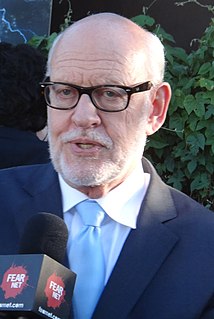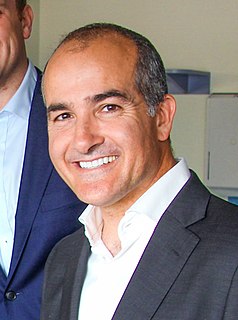A Quote by Richard Pascale
Corporations, in the name of efficiency, suppress variation by "getting all the ducks in line."To optimize productivity, they evolve highly refined and internally consistent operating systems. Payoff - results - as long as the music lasts. But ... all that streamlining and re-engineering limits diversity, suppresses self-organization ... and curtails a bottom up emergent response to disruptive change.
Quote Topics
Bottom
Change
Consistent
Corporations
Disruptive
Diversity
Ducks
Efficiency
Engineering
Evolve
Getting
Highly
Lasts
Limits
Line
Long
Music
Name
Operating
Operating System
Operating Systems
Optimize
Organization
Payoff
Productivity
Refined
Response
Results
Self
Streamlining
Suppress
Systems
Up
Variation
Related Quotes
Instead of a bottom-line based on money and power, we need a new bottom-line that defines productivity and creativity as where corporations, governments, schools, public institutions, and social practices are judged as efficient, rational and productive not only to the extent they maximize money and power, but to the extent they maximize love and caring, ethical and ecological sensitivity, and our capacities to respond with awe and wonder at the grandeur of creation.
To those who feel that their values are THE values, the less controlled systems necessarily present a spectacle of "chaos," simply because such systems respond to a diversity of values. The more successfully such systems respond to diversity, the more "chaos" there will be, by definition, according to the standards of ANY specific set of values- other than diversity or freedom as values. Looked at another way, the more self-righteous observers there are, the more chaos (and "waste") will be seen.
It is true that the top quintile is getting richer while the bottom is getting poorer, but the bottom is not the same people. There is, fortunately, a constant churning at the bottom as new immigrants move in and those who used to be on the bottom begin their long, thrilling upward climb to the American dream.
Sustaining innovation is the lifeblood of any enterprise. It is the time when we capitalize upon, and recover from, all the disruptive change prior. Most of the operating profits in the world come from sustaining innovation. Much of the market capitalization gains, on the other hand, come from disruptive innovations.
Talking about improving the culture, I prefer to say "develop" or "evolve" rather than "change". If I walk into a room and say: "we are here to change the organization," it sends shock waves through the group. If I say: "your success to date has come from who you are, to be successful in the future, we need to get to X, let's talk about how we evolve the organization to that point," that is a very different statement. Successful organizational "change" must come from the people. So, recruit them with common purpose, recognize that it will take time, and plow forward.


































